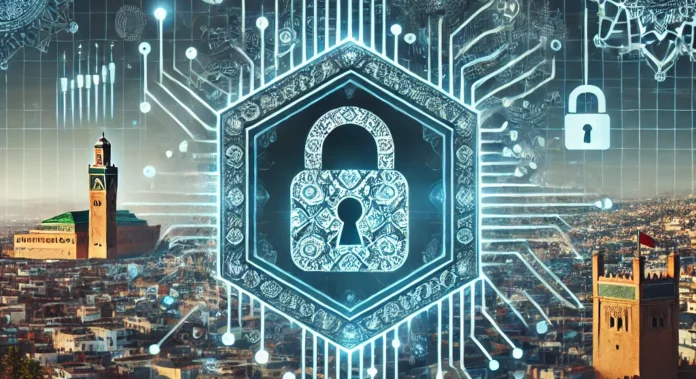As digitalization reshapes lifestyles and economic frameworks, Morocco is solidifying its position as a leader in Africa’s cybersecurity landscape. With increasingly sophisticated threats targeting public institutions, private companies, and individuals alike, the country is undertaking significant initiatives to reinforce its digital resilience. This report explores the challenges, strategies, and the promising future that defines Morocco’s approach to cybersecurity.
Morocco faces a daunting reality. In 2023, over 52 million cyberattacks were reported, a sharp increase compared to previous years. These threats often exploit human and technical vulnerabilities, targeting sensitive sectors such as finance, telecommunications, and industry. Moroccan banks, in particular, are frequently subjected to phishing schemes and malware attacks, underscoring the critical importance of robust defenses.
In a world where the financial toll of cyberattacks exceeds $8 trillion annually, Morocco has become a key battleground. Ranked as the fifteenth most targeted country globally, it also stands out as a leader on the African continent. Its advanced digital infrastructure has positioned it as both a target and a stronghold in the fight against cyber threats.
Emerging technologies are reshaping the threat landscape. Artificial intelligence is being weaponized to create realistic deepfakes, develop intelligent malware, and automate phishing campaigns. Meanwhile, the widespread adoption of cloud computing and the Internet of Things has expanded the avenues through which cybercriminals can strike. While digitalization has driven innovation and efficiency across various sectors, it has also exposed critical systems to new vulnerabilities.
Morocco has responded to these threats with an array of ambitious measures. The government has implemented a national cybersecurity strategy designed to align with international best practices. Efforts include adopting zero-trust architecture, upgrading security operations centers, and deploying advanced systems capable of detecting threats in real time.
Collaborations between the public and private sectors have been pivotal. Partnerships with major technology companies are fostering innovation in defensive technologies, while training programs aim to raise public awareness and build a skilled local workforce capable of tackling future challenges.
On the international stage, Morocco has earned recognition for its efforts, ranking among the 46 global leaders in cybersecurity, according to a recent report by the International Telecommunication Union. This acknowledgment underscores the country’s strides in protecting critical infrastructure and promoting a culture of cybersecurity among public and private entities.
The Moroccan cybersecurity ecosystem is thriving. Events such as the Capture the Flag competitions organized by local companies like Cyberforces are nurturing emerging talent and contributing to a vibrant national landscape. These initiatives align with the broader goal of positioning Morocco as a regional hub for cybersecurity innovation.
Large corporations, particularly in the banking and telecommunications sectors, are leading by example with substantial investments in digital security. Cutting-edge strategies, including access segmentation and offline backups, are becoming standard defenses against the growing wave of cyber threats.
Interestingly, while artificial intelligence is often seen as a threat, it also plays a crucial role in defense. Sophisticated algorithms now enable faster detection of unusual behavior, helping to thwart potential attacks before they materialize.
With major global events such as the 2030 FIFA World Cup on the horizon, Morocco is under increasing pressure to bolster its digital defenses. Experts agree that cybersecurity must be viewed not as an expense but as a strategic investment critical to national resilience.
The challenge lies in embedding a culture of security across all levels of society. From government institutions to individual users, a collective effort is required to ensure sustained vigilance. This involves raising awareness, continually investing in cutting-edge technologies, and fostering international collaboration.
Despite the obstacles, Morocco has demonstrated its capability to rise to the occasion. With a clear vision and concrete actions, it is not only securing its position as a regional leader but also asserting itself as a significant player on the global cybersecurity stage.
Mohamed Mounadi





